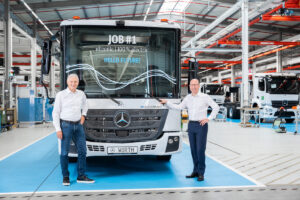 Will the electric car be for all indeed? Who is ready for a full electric car today? What do we need in Italy for the electric mobility diffusion?
Will the electric car be for all indeed? Who is ready for a full electric car today? What do we need in Italy for the electric mobility diffusion?
Electric mobility, from research to charge column, the feasible course
Workshop in live streaming, Friday 19th, from 10:00 a.m. to 1.00 p.m. at Milano Digital Week
The Workshop, organized by Electric Motor Engineering and Mecspe, will give concrete answers to these questions involving the whole chain of the present electric mobility world: from applied research to the energy distribution on the territory for the vehicle charge, listening also to the opinions by Bikeconomy international observatory, the indications by ELMO Interuniversity Consortium on the electrification of mobility, the witnesses by some manufacturers of solutions for the automotive industry and by producers of electric vehicles. Today, competences, technologies and infrastructures already enable the sustainable mobility course.
Conference moderator will be prof. Marco Villani, professor of Electric Machines Design and Electric Systems for Mobility at University of L’Aquila and technical director of Electric Motor Engineering review.
| 10.00 – 10.05 | Greetings and start of proceedings | Alessandro Garnero, editorial director Tecniche Nuove Group |
| 10.05 – 10.20 | Event presentation | Marco Villani, professor of Electric Machines Design and Electric Systems for Mobility at University of L’Aquila. |
| 10.20 – 10.40 | RESEARCH – Synergies at the service of research and sustainable development in the e-mobility sector | Ciro Attaianese, University of Naples Federico II and President of Elmo Consortium |
| 10.40 – 11.00 | ECONOMY & MOBILITY – Sustainable multi-mobility astride Next Generation EU and urban and territorial regeneration | Gianluca Santilli, President of Bikeconomy Observatory |
| 11.00 – 11.20 | AUTOMOTIVE, The electric car for all | Stefano Sordelli, Future Mobility Manager of Volkswagen Group Italia |
| 11.20 – 11.40 | AUTOMOTIVE, The electric mobility of the future: Bosch vision | Federico Brivio, Director, customer Electrification, Robert Bosch S.p.A. |
| 11.40 – 12.00 | TECNICA, European Project H2020 Refreedrive: new solutions of electric motors for automotive | Giuseppe Fabri, researcher at the Department of Industrial Engineering and Information and Economics of University of L’Aquila |
| 12.00 – 12.20 | TECHNOLOGY, Schaeffler innovative systems and components for sustainable mobility solutions | Eugenio Bizzocchi, Director Automotive Technologies Schaeffler Italia |
| 12.20 – 12.40 | INFRASTRUCTURES, Direct Current Infrastructures for electric vehicle charge – Protection and Sectioning | Marco Carminati, Global Direct Current & Arc Flash Mitigation Applications Specialist, ABB Group |
| 12.40 – 13.00 | UTILITY | ENEL |














 Daimler Truck is accelerating the electrification of its vehicle fleet: The
Daimler Truck is accelerating the electrification of its vehicle fleet: The